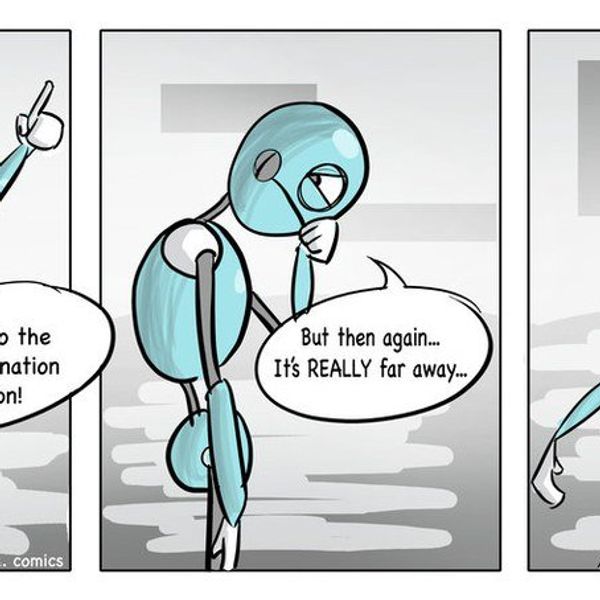From writing daily to waking up early in order to exercise, routines are an essential component of surviving the mountain of distractions and obligations available to every adult. Major life changes, low motivation, and self-doubt and high stress can cause us to slip away from our routines and fall into any number of problematic habits. Reconnecting with your routines is often harder to do the longer you shelve them, but eventually, you may find yourself missing the days when you had higher productivity and a steady sleep schedule.
Finding your way to a balanced lifestyle has its own unique blend of effort and failure, but the following six steps should help you on your way.
1. Track your time
When we cast our routines aside, we tend to use our time in other ways. Keeping track of the hourly activities you engage in for an average day or two can help you get a sense of where your time is going. This is a straightforward way to motivate yourself to reconnect with your routines and help you begin a habit of long-term time budgeting. Beginning this practice can be as simple or complicated as you're comfortable making it. You can jot down what you're doing every hour in a notebook or break down your day in five-minute intervals on a spreadsheet.
2. Take things slow
There's a strong chance that you're eager to dive right into the lifestyle you lost track of. Whether you want to adjust your sleeping routine, commit to a solid hour of writing every morning, or exercise daily, you run the risk of feeling discouraged when you realize that you're out of practice.
Working through your routines is a challenging and imperfect process. If you've been staying up until 3 a.m., you may do what I've done and try to stay awake until your desired bedtime. Often, you'll fall asleep in the middle of the day and find yourself frustrated. Alternately, trying to force yourself into bed awake at your desired bedtime may just result in staring at your ceiling until 3 a.m. Don't let yourself be thrown off by the idea of taking things slowly.
3. Prepare for mistakes
The greatest danger in reconnecting with your routines is discouragement resulting from failure. Even if you start strong, you'll relapse into your non-routines the first few tries. Understanding this allows you to have a more flexible standard for yourself. Maybe you'll fail to wake up early enough and it'll be too hot to safely make it up. Tomorrow's a new day to try again, and over time each little success will pull you away from a lack of motivation or confidence as you reshape your lifestyle.
The example I'm most familiar with is my abuse of YouTube and Twitter, which had entirely thrown off my writing routine. On a good day, I'm awake for 12-14 hours. I average six hours with a YouTube video playing in the background or taking my full and undivided attention. I deleted the YouTube app from my phone on June 28 and made it two full days before pulling up a "let's play" on my laptop. I failed, but it's not an excuse to keep wasting my time sitting around watching videos. Two days later, I've managed to keep myself away from YouTube and found better productivity when listening to non-visual distractions like music and podcasts. I really enjoy a good half hour of silence sometimes, too.
I dealt with Twitter about a year ago, managing to distance myself from it and turn off my notifications long enough that I could stop using it altogether. Now, I use it for two hours per day on average. Today, I've used it for about 20 minutes. I was checking Twitter frequently, making for an average of four hours every day in short intervals. On some weekends at school, I spent as much as 10 hours in my day using these two apps and occasionally glancing at unfinished assignments in my dorm. Now, after several attempts and occasional mistakes, I'm feeling satisfied with my habits and rekindling my old writing routines.
4. Plan thoroughly
You should have specific expectations for yourself, even if you're likely to fall short of your plans the first few times. Knowing that you want to wake up at 6 a.m. every morning is much better than wanting to wake up "earlier." Track the miles you do run if you don't make the original distance you planned. Set manageable goals that you can measure that enable you to measure progress.
5. Consistency is key
Try not to readjust your goals every time you fall short of them. Consistency is key, meaning that having the same goal to strive for will take you farther than adjusting your goal every other day. However, remember that failing to meet your goal initially is to be expected. Remaining consistent helps you ensure that you keep a realistic goal for yourself and don't settle for a routine that misaligns with your expectations.
6. Re-evaluate
Some of your old routines may deserve a second look as you get back into your old habits and pull yourself away from bad ones. If you have trouble jumping back into your old list of routines, you might have better progress by taking some baby steps. After forming unhealthy habits or losing motivation to carry out your routines over time, you may have to start small before working toward your more ambitious routines. In the process of trying out a more simplified set of routines, you may find some improvements to the old one.
Routines are a crucial part of our everyday lives. Sometimes, we slip away from them though, and reconnecting with them can be challenging. It is important that we have the patience to grow and improve once we've settled into low productivity and unhealthy habits.





















